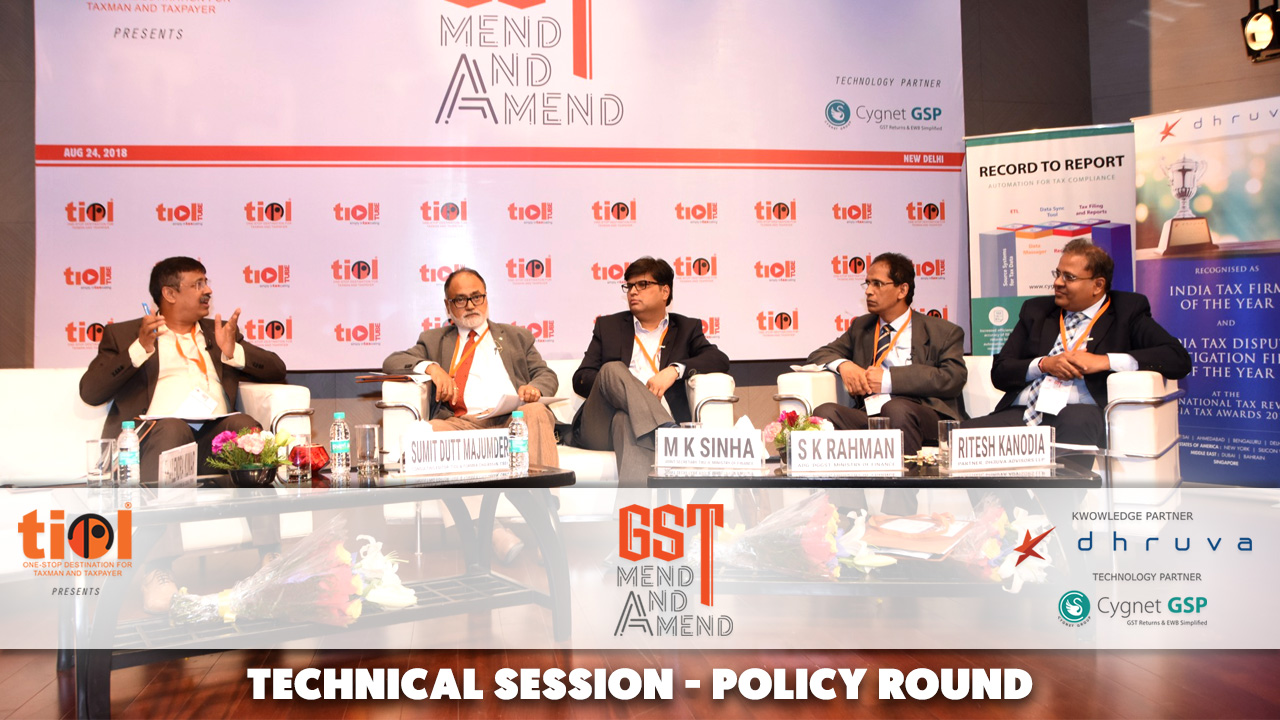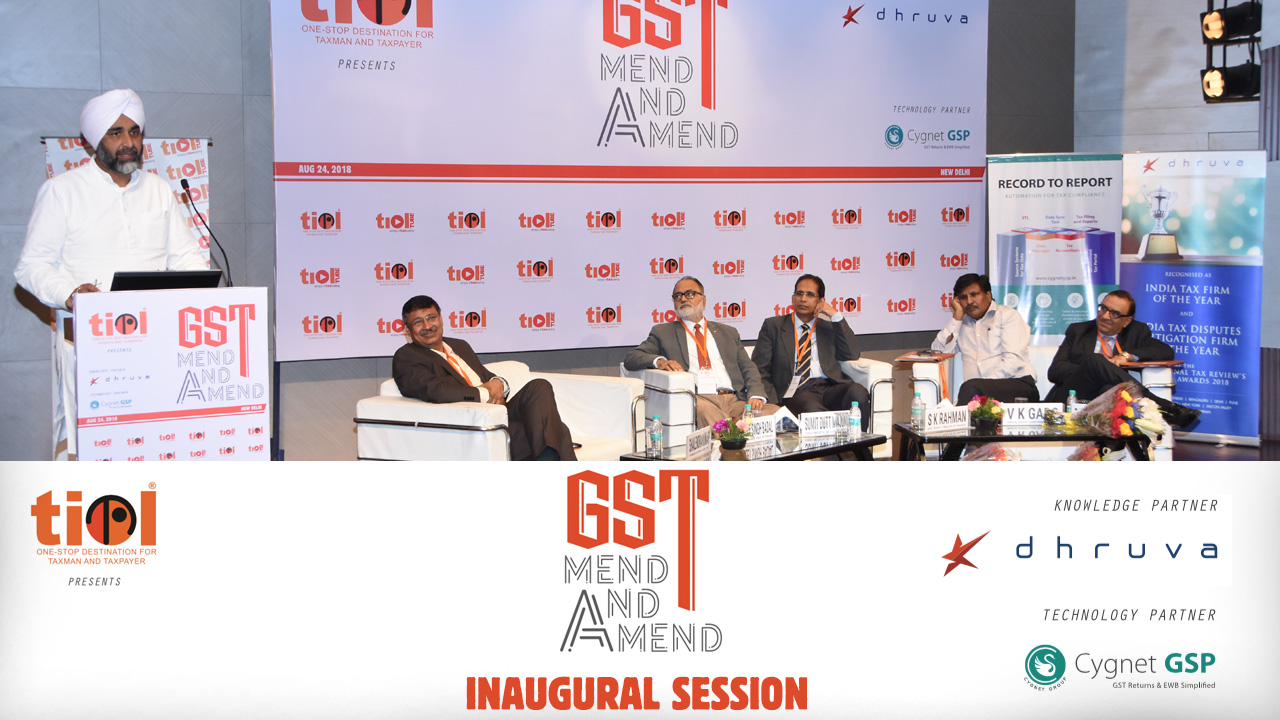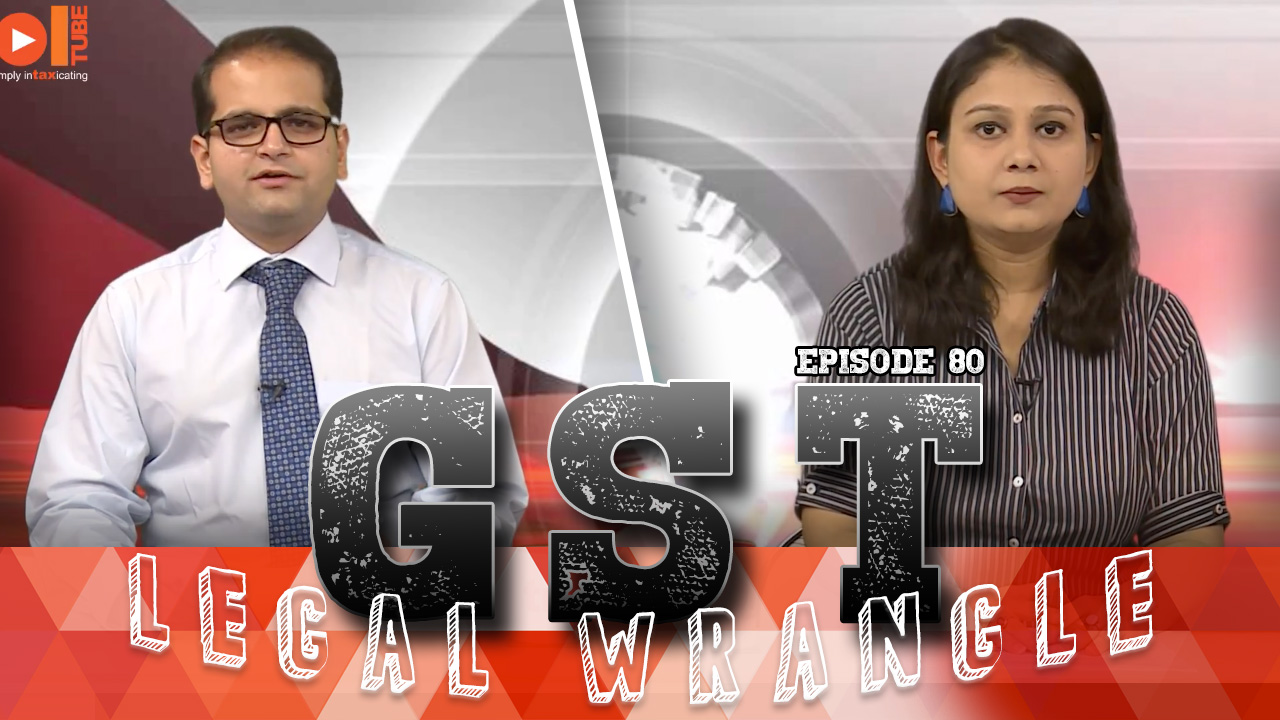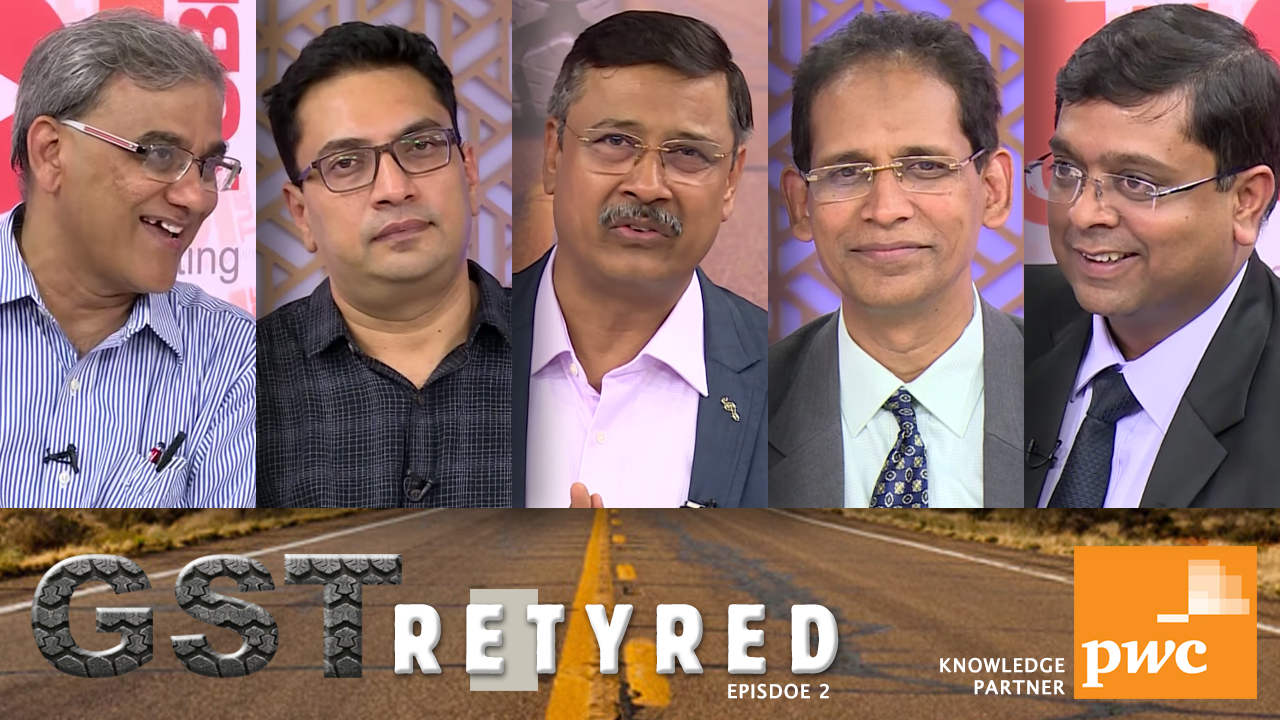|
SERVICE TAX
2018-TIOL-2676-CESTAT-MUM + Case Story CCE Vs HM Satyanarayan Engineers And Contractors
ST - "Activity of laying optical fiber cable" is not different from the "Activity of laying electric cable" - Board Circular 123/5/2010-TRU clarifying that activity is not taxable applies - If some activity has been clarified to be not taxable, then revenue cannot take a stand that activity would fall under any taxable category, because of the reason that show cause notice raised dispute of classification - No merit in Revenue appeal, hence dismissed: CESTAT [para 6, 7]
- Appeal dismissed: MUMBAI CESTAT
2018-TIOL-2675-CESTAT-MAD
SQS India BFSI Ltd Vs CST
ST - Assessee have been held liable to service tax for testing customers software under category of "Technical Testing and Analysis Services" for the period 01.07.2003 to 31.12.2005 - The Tribunal in case of M/s. Relq Software Pvt. Ltd. has dealt with an identical issue and has categorically held that Testing and Analysis of Software was not a taxable service prior to 16.05.2008 - The said decision of Tribunal was appealed again by Revenue before Karnataka High Court, wherein their appeal was rejected on the technical issue of not falling within the jurisdiction of High Court - Further, the Tribunal in case of M/s. Aztecsoft Ltd. 2013-TIOL-1541-CESTAT-MUM has also held to the same effect - The period is prior to 16.05.2008 and as the testing of Information Technology Software was specifically brought under the category w.e.f. 16.05.2008, no justifiable reasonfound to uphold the demand: CESTAT
- Appeal allowed: CHENNAI CESTAT
2018-TIOL-2674-CESTAT-AHM
KB Mehta Construction Pvt Ltd Vs CST
ST - Assessee have entered into contract with L & T - In case of L & T though the contract was consolidated includes service and supply of raw-material, but, the assessee have bifurcated the same into sale of material and service against the total contract value of Rs. 4.40 Crores only Rs. 33 Lakhs was shown as service and only on such amount service tax was discharged - Revenue’s contention is that the entire contract value which includes service and supply of goods should be clubbed together and on which the service tax was demanded - When the service is inclusive of supply of goods in such case, the exemption in respect of value of goods involved in provision of services is exempted by Notfn 12/2003-ST - Revenue has not made any effort to verify that despite making different invoices in respect of services and sale of the goods whether the value of service was suppressed and transferred to the transaction of sale of the goods - It is also fact that the assessee have paid VAT in respect of those invoices where the goods were shown to have sold - In this fact, if the value shown in sale invoices is correct towards the sale of goods, the same will not be chargeable to service tax in terms of Notfn 12/2003-ST - The Adjudicating Authority has not verified the fact that the bifurcation of the value between the service and the supply of goods is correct or other wise - Therefore, matter remanded to the Adjudicating Authority for passing a fresh order: CESTAT
- Matter remanded: AHMEDABAD CESTAT
2018-TIOL-2673-CESTAT-HYD
Dr Reddy's Laboratories Ltd Vs CCT
ST - Appellants are an SEZ unit and they filed refund claims in terms of Notification No.12/2013-ST in respect of the service tax paid on services used for the authorized operations of SEZ unit as approved by the Unit Approval Committee (UAC) - Appellate authority rejected refund of Rs.67,980/- +Rs.3,39,900/- which were paid as retainership fee on the ground that the impugned service is not mentioned in the list approved by the UAC - assessee asserts that the service rendered was actually consulting engineering service and the consultant indicated the nature of service as retainership service.
Held: Retainership, as is understood in the market parlance, is a form of payment for service - either the service provider gets paid for each item of work or he gets paid on a periodical basis certain amount (called as retainership) so that he can make his services available as and when required - Retainership could be for any service such as consultancy, lawyers, technical experts, etc. - Unless the nature of the service rendered is clear and the service tax paid is also clear, it cannot be determined whether the appellant in this case will be entitled to refund of service tax or not – Being a factual matter which needs verification, matter remanded: CESTAT [para 6, 7]
- Matter remanded: HYDERABAD CESTAT
2018-TIOL-2672-CESTAT-HYD
Hindustan National Glass And Industries Ltd Vs CCT
ST - During audit, it was found that the appellant had not paid Service tax on reverse charge basis in respect of Legal services received from advocates, Rent a cab services received,Business auxiliary services received to whom commission was paid in foreign currency and Consultancy services received from overseas and paid in foreign currency - upon pointing out the same, appellant paying service tax of Rs.9,40,858/- along with interest even before SCN was issued - later SCN issued, demand confirmed, amount appropriated and equivalent penalty imposed - Commissioner(A) upheld this order, therefore, appellant before CESTAT contending that demand is invalid under Sec.73(3) of the Finance Act, 1994 since tax paid with interest before issuance of SCN; that penalty is not imposable.
Held: It is not in dispute that the service tax so paid could be claimed by appellant as CENVAT credit - In other words, the assessee could have paid service tax on one hand and could have got the credit of the same amount on the other - Since the entire exercise is revenue neutral, no malafide can be attributed to them as there is nothing on record to show that they gained by not paying the Service Tax - similar view was taken in Jet Airways - 2016-TIOL-2072-CESTAT-MUM as upheld by Supreme Court - penalty imposed u/s 78 of FA, 1994 set aside - Appeal partly allowed: CESTAT [para 10, 11]
- Appeal partly allowed: HYDERABAD CESTAT
CENTRAL EXCISE
2018-TIOL-2671-CESTAT-ALL
LG Electronics India Pvt Ltd Vs CC & CE
CX - The duty that was paid by M/s L. G. Electronics India Pvt. Ltd. was availed as Cenvat credit by M/s K. Three Electronics Pvt. Ltd. - The provisions of Cenvat Credit Rules allow credit of entire duty paid on the inputs and capital goods and it is settled position of law that assessment cannot be done at the end of the receiver of inputs - CBEC has also issued such instructions - Further, relying on the ruling of High Court of Punjab & Haryana in case of Perfect Synthetics, Tribunal do not find anything wrong in the transaction entered into either by M/s L. G. Electronics India Pvt. Ltd. or by M/s K. Three Electronics Pvt. Ltd. - Therefore, there is no case for Revenue to reverse the Cenvat credit availed by assessee or to recover interest or to impose penalty on any of them: CESTAT
- Appeals allowed: ALLAHABAD CESTAT
2018-TIOL-2670-CESTAT-MAD
Kone Elevator India Pvt Ltd Vs CCE
CX - The assessee is engaged in manufacture and supply of 'Lifts' and components thereof - As there is no sale of parts and components as such and being exclusively used for captive consumption in erection of lifts at customers site, the value is required to be determined as 110% of cost of production in terms of Rule 8 of Valuation Rules, 2000 r/w Section 4 (1) (b) of the CEA, 1944 - For the purpose of determining cost of production, department appointed an independent Cost Auditor to go through their accounts and to arrive at the cost of production for respective years - The Cost Auditor while submitting the report stated that as there are issues like volume of components and quantitative reconciliation, consolidated CAS-4 Certificate is prepared to arrive at the cost of production of components manufactured by assessee - After calculation of duty payable as per Cost Auditor's Report, assessee was liable to pay differential duty for the periods involved in these appeals - Assessee failed to pay the differential duty - After due process of law, the original authority confirmed the differential duty demand along with interest - When the assessee have availed Cenvat credit on entire input/raw materials consumed, their contention that the value of that part of raw material which remains as remnant parts from the steel sheet has to be deducted cannot be accepted - The Cost Auditor has deducted the value of scrap recovered - Therefore no grounds found to interfere with impugned order - The contentions of assessee are without any legal basis: CESTAT
- Appeals dismissed: CHENNAI CESTAT
2018-TIOL-2669-CESTAT-DEL
Jaypee Sidhi Cement Plant Vs CGST CC & CE
CX - Assessee purchase coal from various subsidiary companies of M/s Coal India Ltd., like M/s South Eastern Coalfield and M/s Northern Coalfield Ltd. - The Coal was being purchased as an input in manufacturing activity and the excise duty paid on such coal was being availed as Cenvat Credit - During period in dispute, the coal companies raised supplementary invoices after making payment of differential excise duty which arose as a result of the dispute regarding the inclusion of various elements such as Royalty, Stowing excise duty and Clean Energy Cess in assessable value of coal - Department was of the view that the assessee will not be entitled to avail Cenvat Credit transferred through such supplementary invoices in view of Rule 9 (1) (b) of CCR, 2004 - The assessee has cited the decision of Tribunal in case of Birla Corporation which has been passed in an identical set of facts involving the same coal companies - In that case, the Tribunal allowed the Cenvat Credit holding that there cannot be suppression of fact when the issue of liability of payment of Excise duty at the end of the coal companies was a debatable issue which is pending adjudication in Apex Court - By following the said decision, impugned orders set aside: CESTAT
- Appeals allowed: DELHI CESTAT
CUSTOMS
CIRCULAR
cuscir29-2018
Pilot Implementation of Paperless Processing under SWIFT-Uploading of Supporting Documents (eSANCHIT) in Exports
CASE LAWS
2018-TIOL-1762-HC-DEL-CUS + Case Story
CC Vs RK International
Cus - Without specific demand in the show cause notice issued u/s 124, Revenue is not entitled to recover customs duty u/s 125 of the Customs Act, 1962 - quantum of duty, even on a tentative basis should necessarily be spelt out in show cause notice, which is essential under Section 124 of the Act - If that primary obligation, which lies with the State Official is not discharged, it cannot be contended at a later stage that the importer was under an obligation to pay the relevant duty, which was never assessed in the first instance - question of law answered against the Revenue - appeal dismissed: High Court [para 3, 4]
- Appeal dismissed
: DELHI HIGH COURT
2018-TIOL-2668-CESTAT-DEL
Honey Well International India Pvt Ltd Vs CC
Cus - Whether the assessee have committed any illegality in filing the two claims for refund of SAD under Notfn 102/07/CUS, with respect to two separate Bills of Entry, within the same calendar month - The restriction is with respect to a particular Bill of Entry, and there is no restriction for the assessee to file separate refund claims in a particular month with respect to different Bills of Entry - The refund claim has to be processed with respect to a particular Bill of Entry, and the goods sold by their subsequent sale and sales tax having been paid - Therefore, there is no illegality and or violation or procedural infirmity in making two refund claims in respect of two different Bills of Entry - Accordingly, Adjudicating Authority is directed to grant the refund, in respect to claim which was filed in the month of October 2013, by the assessee - Such refund claim is to be processed and disbursement made within a period of 60 days: CESTAT
- Appeal allowed: DELHI ITAT
2018-TIOL-2667-CESTAT-MAD
Sujana Metal Products Ltd Vs CC
Cus - Assessee has imported certain goods and declared the same as heavy melting scrap and claimed the benefit of customs Notfn 21/2002 available for such melting scrap - But after examination of imported goods, customs authorities found them to be new anchor chains in running length - The examination of goods by National Metallurgical Laboratory revealed that the goods were used and rejected, that the end links are irregularly cut in a few cases - The independent Chartered Engineer, who examined the goods has further noticed rusting and pitting in most of the chain links - The examination reports clearly point to the fact that the imported goods were not new anchor chains even though they were in running length, Findings of usage and rusting, pitting clearly point to the fact that the chains are effectively incapable of being used as anchor chains for ships - A reference to the inspection report at originating end clearly tells that the goods are in nature of scrap/second hand/defective and that such goods are to be considered as scrap as per Internationally accepted parameters for such classification - It is noteworthy that the inspection agency at the Port of Export is one of agencies recognized by DGFT for such classification - Secondly, such a classification report cannot be completely ignored - The goods imported which have been declared as melting scrap, have been held to be otherwise by customs authorities mainly in view of goods were in running length - But in the light of opinion of various agencies including that of certification agency at the Port of Export, imported goods are required to be as metallic scrap as per the internationally accepted parameters for such classification - Consequently, no justification found to disregard such evidences and order reclassification under 7315 as second hand goods - There is no justification to order confiscation of the imported goods under Section 111 (d) (m) of the Customs Act, 1962 for mis-declaration - Impugned order set aside: CESTAT
- Appeal allowed: CHENNAI CESTAT
|
|








